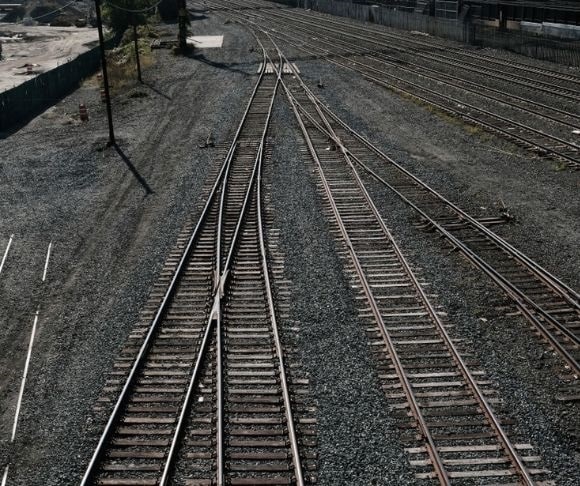The US economy avoided a crippling rail strike in September when railroads and unions representing 115,000 workers reached a tentative agreement. Two months later, employees at four unions rejected the deal, and now Americans might witness a national rail strike that could begin on Dec. 9, which is projected to cost the country $2 billion per day and add to inflationary pressures. As it did this past summer, will the White House save the day again? The administration may not even know.
Rail Strike Factors
 On Nov. 21, Train and engine service members of the transportation division of the International Association of Sheet Metal, Air, Rail, and Transportation Workers (SMART-TD) voted to turn down a deal that was brokered through a board appointed by President Joe Biden. This unit officially joined three other unions in turning down the proposal. The main grievance is the number of paid sick days: the unions requested 15, and the railroads returned with one. Railway companies that slashed operating costs to boost profits contend that adding so much more paid sick time will force them to hire additional personnel.
On Nov. 21, Train and engine service members of the transportation division of the International Association of Sheet Metal, Air, Rail, and Transportation Workers (SMART-TD) voted to turn down a deal that was brokered through a board appointed by President Joe Biden. This unit officially joined three other unions in turning down the proposal. The main grievance is the number of paid sick days: the unions requested 15, and the railroads returned with one. Railway companies that slashed operating costs to boost profits contend that adding so much more paid sick time will force them to hire additional personnel.
Both sides have come under pressure, as any disruption in service would dramatically raise the cost of various goods, from chemicals to energy. In total, between 30% and 40% of US cargo shipments by weight would be frozen. The other factor in this issue is that nearly all passenger rail would come to a halt because half of the commuter trains operate on tracks owned by freight railroads. At the same time, industry trade organizations argue that the rail industry has cut too many costs that have impacted service and threatened safety.
Since this is a critical sector of the economy, federal regulations mandate that carriers must begin preparing one week before the strike date. One of these procedures demands that all sensitive materials will no longer be moved 96 hours prior to the strike date. In addition, the Association of American Railroads will release its planning steps leading up to the day of action.
What About Washington?
Of course, these panic attacks may all be in vain because Washington could intervene. The US Chamber of Commerce urged Congress to get involved to stop any disruption. Congress reconvenes on Nov. 29, so it is a possibility, says Rep. Sam Graves (R-MO), who serves on the House Transportation and Infrastructure Committee. “It would be nice if they could come to an agreement, but if they won’t, then Congress needs to intervene, because it could cripple the country,” he told a local media outlet.

Karine Jean-Pierre (Photo by Samuel Corum/Getty Images)
White House Press Secretary Karine Jean-Pierre said at a press briefing that President Joe Biden has been involved in the discussions between unions and the railroads. “The president is indeed involved directly,” said Jean-Pierre. “I don’t want to get into the details at this time, but he has been involved. He remains focused on protecting America’s families.”
However, Biden confirmed to reporters that he has not spoken with the unions or their employers, mainly because talks are still ongoing. So, it is unclear what strategy the Democrats, be it Biden or House Speaker Nancy Pelosi (D-CA), will employ coming back from the Thanksgiving holiday break.
The Immediate Effects
A railroad disruption would be severe and crippling for much of the United States. Chlorine used by treatment plants to purify water would be challenging to purchase. Gasoline and diesel prices are expected to climb because refineries would suspend operations since they would be unable to receive the ingredients necessary to manufacture fuel. Supermarkets would have fewer food items for two reasons: 30% of all packaged food is transported by rail, and chickens and pigs would not have enough feed to survive. Overall, all of these factors would exacerbate inflation and potentially reverse the slowdown in the consumer price index (CPI) observed in October. If the Dec. 9 rail strike goes full steam ahead, this year’s Christmas season might turn out to be not the most wonderful, but the most unusual, time of the year.




